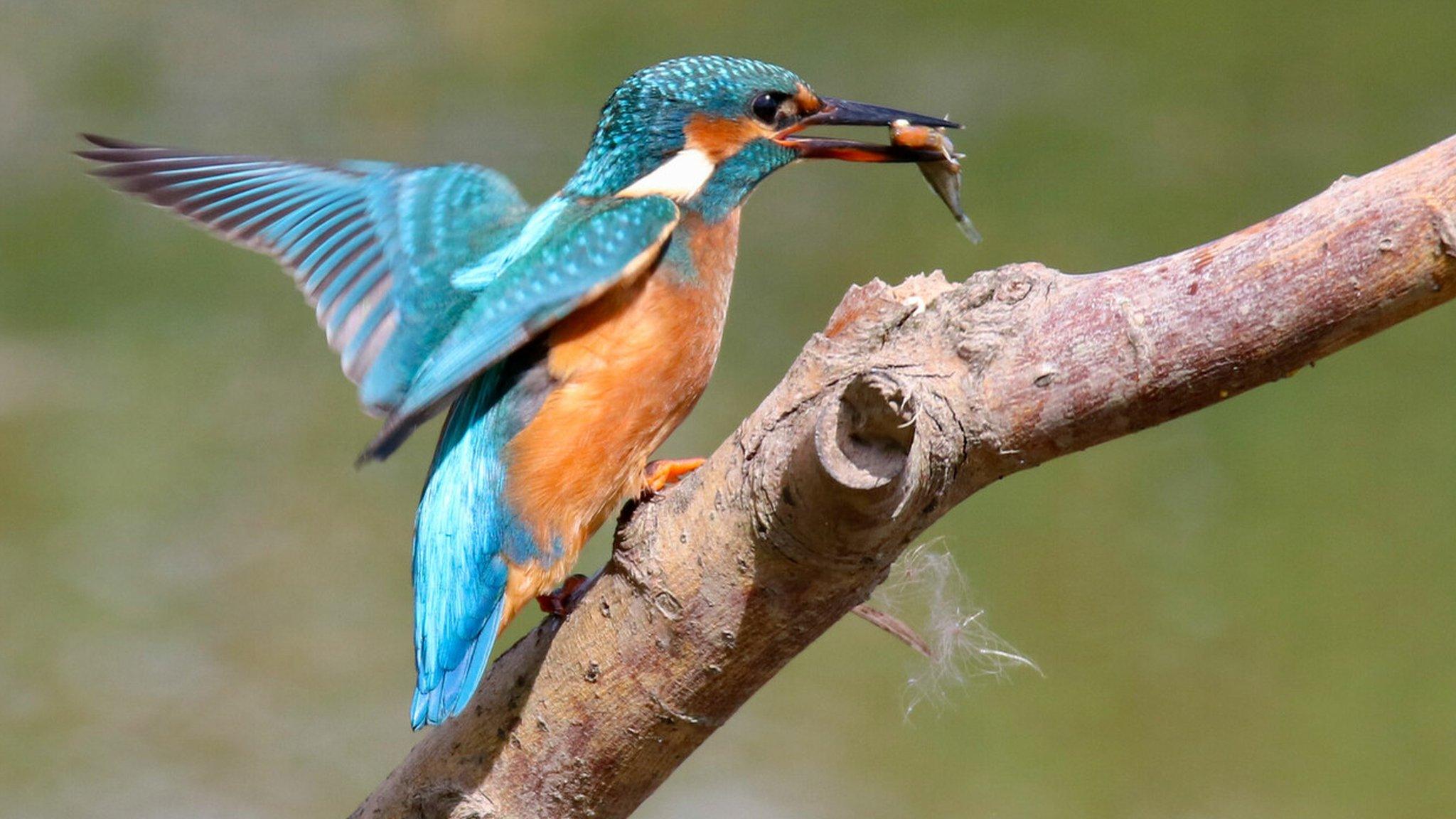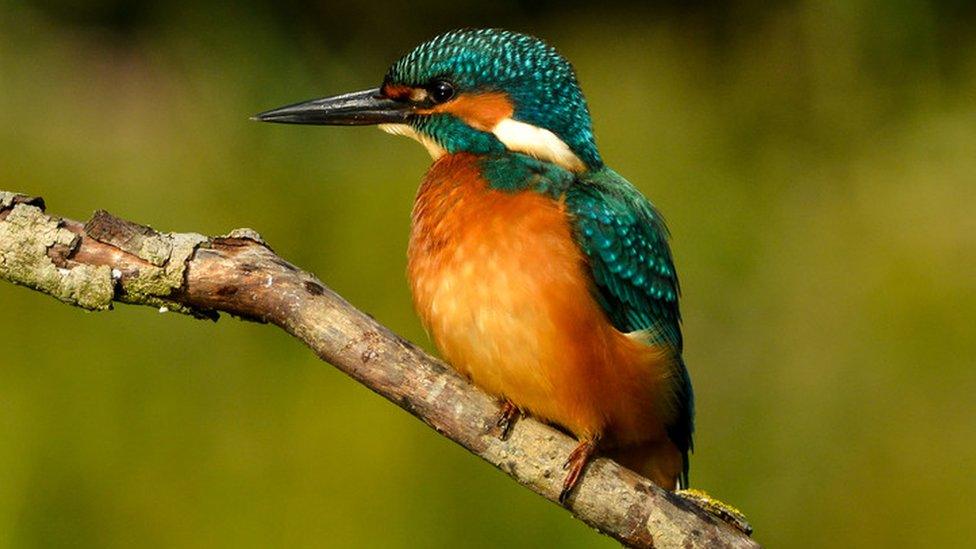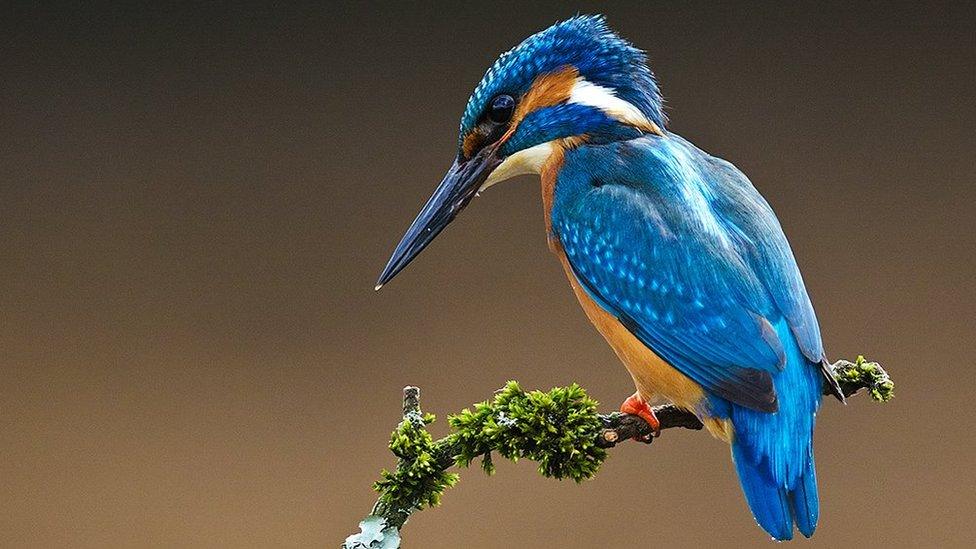Slimbridge sees earliest ever nesting kingfishers after mild winter
- Published

Male Kingfishers present fish to females to stimulate them to lay eggs
A pair of kingfishers have become the earliest to start building a nest ahead of breeding at Slimbridge Wetland Centre in Gloucestershire.
The bird species do not usually nest until early March, and may have started early on 4 February "due to the mild winter", experts at the centre said.
Kingfishers have an estimated 4,900 breeding pairs in the UK.
Visitors to the Wildfowl and Wetlands Trust headquarters can try and spot the birds from a hide opposite the nest.
"Spring hasn't even fully sprung at WWT Slimbridge yet a pair of kingfishers seem to think so as they have already starting digging a hole to nest," a Trust spokesperson said today.
Kingfisher nest building begins with the renovation of an old nesting burrow or a construction of a new one in the kingfisher bank, a vertical wall of soil.
Once a home is chosen for the pair, the male will present fish to the female in order to get her into condition to grow, lay and incubate the eggs.
Kingfishers incubate typically five to seven eggs for about three weeks, and once the eggs have hatched the kingfishers will spend around four weeks raising the chicks.
Both the male and the female will feed them in the nest hole, with up to a 100 fish a day, including some aquatic invertebrates.

Kingfishers have an estimated 4,900 breeding pairs in the UK.
Only a few lucky visitors may see the newly fledged young, which tend to disperse very quickly, as the parents chase them off as they prepare for a second clutch of eggs.
WWT Slimbridge say two broods are the norm but occasionally a third clutch has occurred, "and it could possibly be one of those years."
Dave Paynter, Reserve Manager at WWT Slimbridge, said: "We had a brilliant breeding season for kingfishers in 2023 and in January the Reserve Team were busy getting the banks ready for this year's birds.
"It was fantastic to see a pair of kingfishers already digging from the beginning of February," he said.

Follow BBC West on Facebook, external, X, external and Instagram, external. Send your story ideas to: bristol@bbc.co.uk , external
Related topics
- Published21 September 2023

- Published22 October 2023